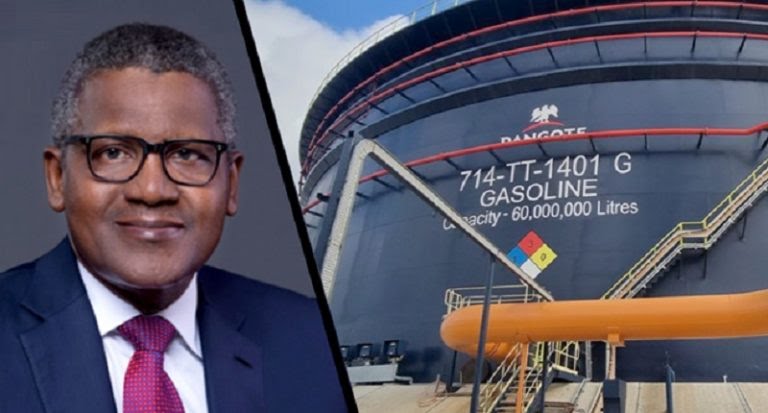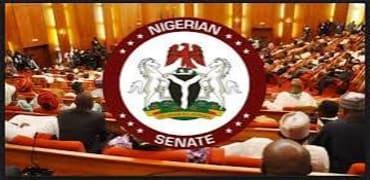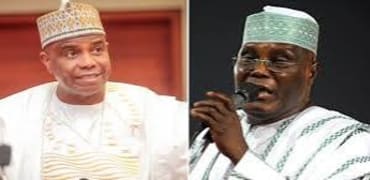Fuel Frenzy: South Africa And 6 Other Nations Queue For Dangote Refinery's Fuel Supply
"Fuel Frenzy: South Africa and 6 Other Nations Queue for Dangote Refinery's Fuel Supply"
By Achimi Muktar
The Dangote Refinery and Petrochemical, a monumental project with a 650,000-barrel-per-day capacity, is on the verge of transforming Africa's fuel market. The refinery is preparing to export fuel to South Africa, Angola, Namibia, and other African countries, Saturday PUNCH can exclusively confirm.
Talks are reportedly in advanced stages with these nations, and negotiations are also underway with Niger Republic, Chad, Burkina Faso, and the Central African Republic. With more countries expressing interest in sourcing fuel from the $20 billion Lekki-based refinery, Africa is witnessing a major shift in fuel supply dynamics.
A highly placed source within the refinery’s management confirmed the developments on Friday, revealing that the negotiations will lead to a significant reshaping of fuel imports across Africa.
"Ghana Eyes Major Deal"
Recently, Ghana also expressed interest in purchasing fuel from the Dangote Refinery. The Chairman of Ghana’s National Petroleum Authority, Mustapha Abdul-Hamid, stated that this move would slash Ghana’s monthly $400 million fuel imports from Europe, highlighting the broader impact Dangote’s operations will have on regional economies.
“I can confirm to you that talks are at an advanced stage with Ghana, Angola, Namibia, and South Africa. Initial discussions are also underway with Niger, Chad, Burkina Faso, and the Central African Republic,” the source revealed.
"Fuel Marketers Resist, Claim Monopoly"
Despite Dangote’s vast capacity to supply fuel locally and across the continent, Nigerian fuel marketers are reportedly resisting the refinery’s prices. The Independent Petroleum Marketers Association of Nigeria (IPMAN) and the Petroleum Products Retail Outlets Owners Association of Nigeria (PETROAN) recently announced plans to import cheaper fuel from international sources, claiming Dangote’s prices are too high.
Local marketers argue that importing more affordable petrol will ease the financial burden on Nigerians, who are still adjusting to price hikes following the removal of fuel subsidies. However, these marketers face hurdles, including the need for approval from the Central Bank of Nigeria (CBN) for foreign exchange and permits from the Nigerian Midstream and Downstream Petroleum Regulatory Authority (NMDPRA).
"A Battle Over Licenses"
Tensions escalated as PETROAN and IPMAN accused Dangote of attempting to monopolize the market. PETROAN’s National Public Relations Officer, Dr. Joseph Obele, described Dangote as an "aggressive competitor" determined to block others from entering the fuel supply market.
Obele claimed that his association had applied for an import license over a month ago through its newly established trading wing but accused Dangote of using his influence to prevent competition.
“You should know that Dangote is just out to close all the doors and windows so that no one enters the market,” Obele said. He assured Nigerians that once their import license is approved, fuel prices would "crash to the barest minimum."
The NMDPRA, however, clarified that import licenses must be granted to individual marketers rather than associations. This position has created friction between regulatory authorities and marketers, further complicating the ongoing fuel supply debate.
"The Path Ahead for Nigeria"
As Nigeria navigates its post-subsidy fuel economy, the role of the Dangote Refinery looms large. The refinery is poised to become the backbone of Nigeria’s fuel supply, with the capacity to meet both domestic and international demand. However, the resistance from local marketers and the call to break monopolies reflect deeper tensions within the fuel market.
Nigerians now watch as the regulatory framework, market forces, and Dangote’s expanding influence shape the future of fuel pricing and distribution. Whether the local marketers’ claims hold weight or Dangote solidifies his position as the key player in Africa’s fuel landscape remains to be seen.


















